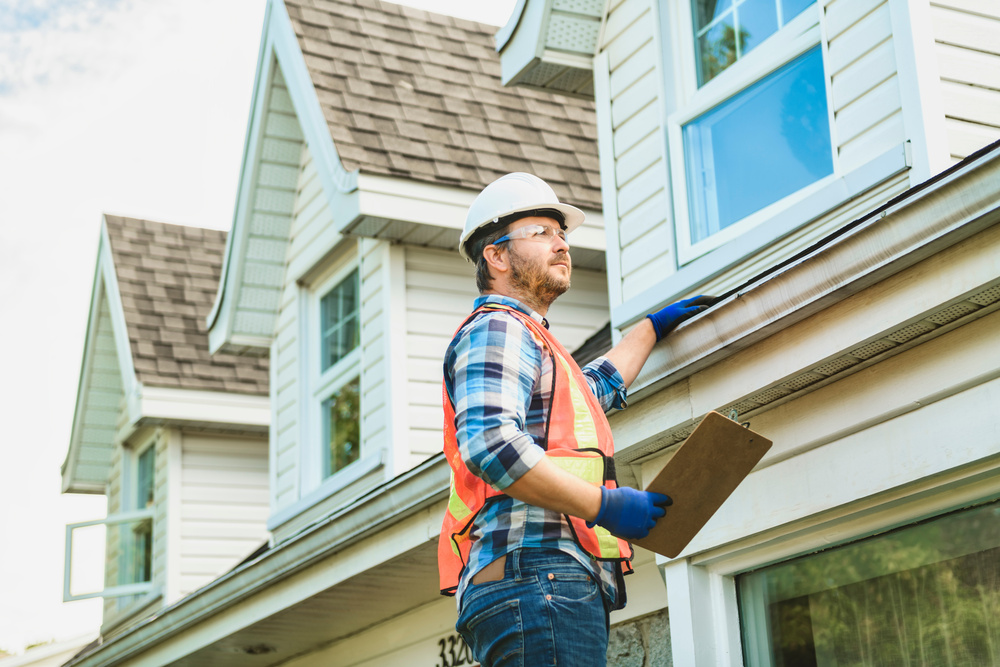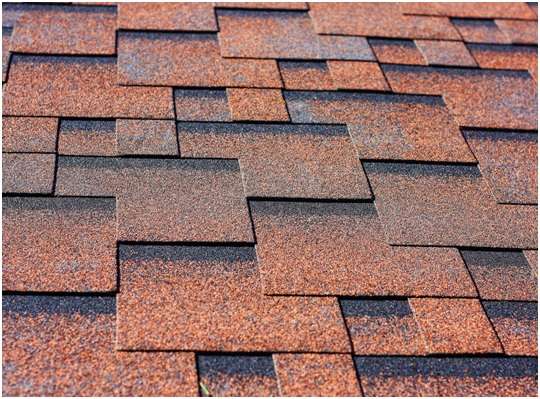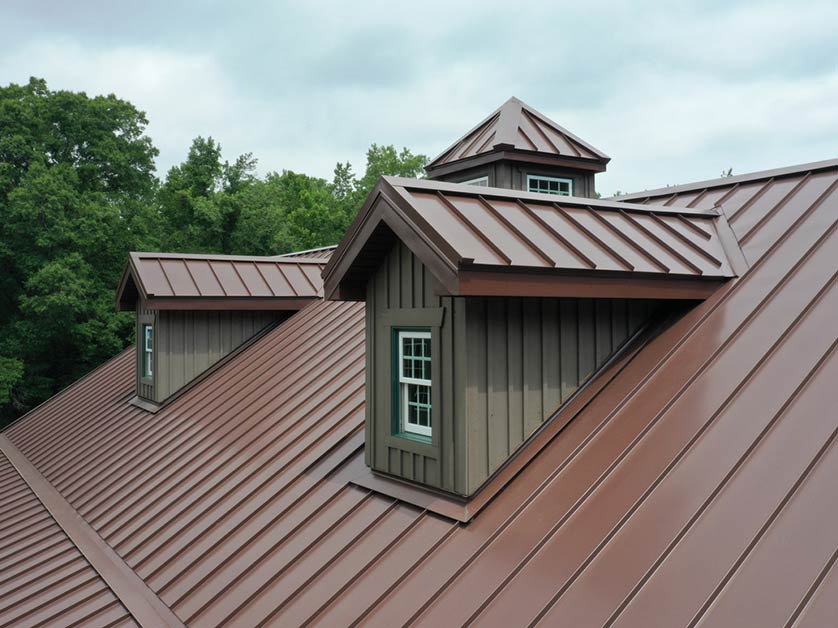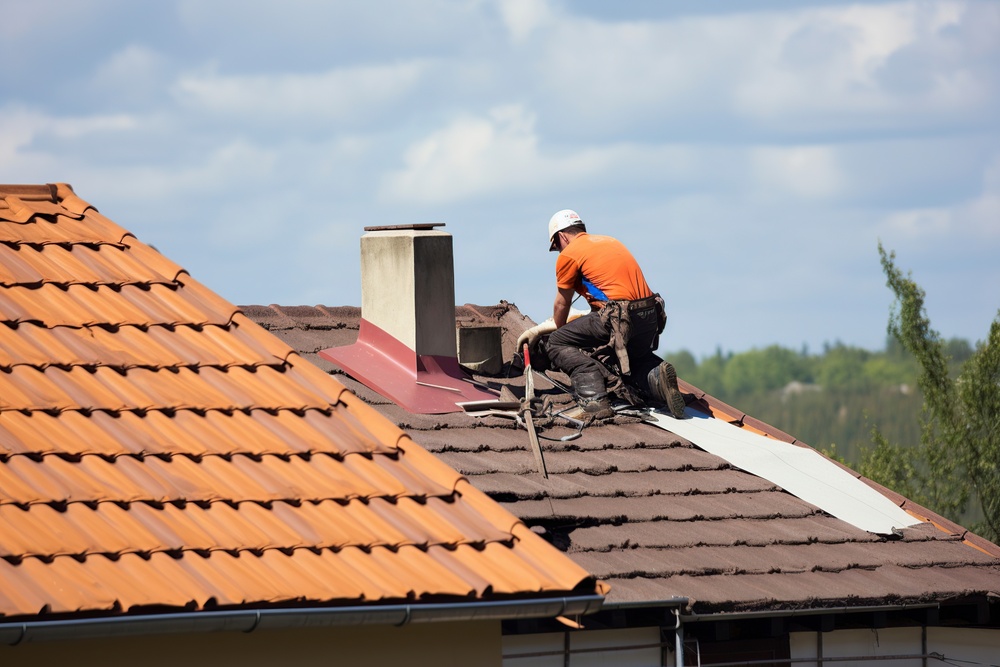Many myths can mislead homeowners about roofing in St. Paul. Is it true that dark roofs make your home unbearably hot? Not quite. In reality, modern roofing technology has greatly mitigated temperature issues regardless of color.
By addressing these misconceptions, we aim to help residents make informed decisions about their roofs. Stick around to uncover more surprising truths about roof maintenance and replacement.
Key Takeaways
- Roofing materials vary in durability and weather resistance, with options like metal and tile providing strong protection against harsh climates in St. Paul.
- Regular roof inspections are crucial, as they can prevent hidden damage and costly repairs, and they are recommended bi-annually for homes in St. Paul.
- DIY roof repairs often lead to more significant issues, such as safety hazards and potential warranty voiding, making professional repair essential.
- Contrary to common belief, flat roofs can be reliable and effective when appropriately maintained, even in St. Paul’s extreme weather.
- Homeowners’ insurance only covers some roof damage; understanding what your policy includes and ensuring regular maintenance is critical to proper coverage.
Myth 1: All Roofing Materials Offer the Same Level of Protection
Not all roofing materials provide the same level of protection. Each type has its strengths and weaknesses, depending on durability and weather resistance.
Overview of Different Roofing Materials
Since much misinformation surrounds popular new roof replacement materials like metal and asphalt shingle roofs, it’s crucial to consider the right material.
Different roofing materials offer varying levels of durability and protection, such as:
| Materials | Durability | Weather Resistance |
| Asphalt Shingle | Moderately durable | Good for mild climates |
| Metal Roof | Highly durable | Excellent for harsh weather |
| Tile | Very durable | Great for various climates |
| Wood Shake | Less durable | Poor in wet climates |
How Climate in St. Paul Affects Material Efficiency
The climate in Minnesota significantly impacts the effectiveness of various roofing materials. Harsh winters and strong winds require materials that can withstand severe conditions. Here are the critical points about climate and roofing materials:
- Cold Weather: Metal roofs excel due to their resistance to snow and ice.
- Wind Resistance: Asphalt shingles can be less effective.
- Moisture: Tile roofs handle rain and lightning well but can be heavy.
Myth 2: Roof Inspections Are Unnecessary Unless There’s Visible Damage
Many homeowners overlook the importance of regular roof inspections, mistakenly believing these checks are only necessary when visible damage occurs. This mindset can lead to severe issues, often preventable with timely inspection and maintenance.
The Hidden Dangers of Neglecting Roof Inspections
Neglecting regular roof inspections can result in hidden dangers that remain undetected until they cause significant damage. Here are the crucial dangers of neglected roof inspections:
- Water Damage: Leaks can develop, leading to structural issues.
- Moisture Buildup: Trapped moisture fosters mold and mildew.
- Winter Stress: Ice and snow loads can weaken the roof.
- Hidden Cracks: Small cracks can lead to significant roofing problems over time.
Recommended Inspection Frequency for St. Paul Homes
For homeowners, regular maintenance should include bi-annual roof inspections. The local climate, marked by harsh winters, requires more frequent checks.
Recommended inspection schedule:
| Time of Year | Focus Areas |
| Spring | Post-winter damage, moisture |
| Fall | Preparation for winter, cracks |
Myth 3: DIY Roof Repairs Are a Cost-Effective Solution
Many people believe that fixing their roofs themselves will save money and time. However, DIY roof repairs can lead to significant risks and require professional intervention.
Risks of DIY Roof Repairs
DIY roof repairs may seem like an excellent way to save money, but they can pose serious risks. Let’s explore these risks in more detail:
- Incorrect Installation: Shingles may not be properly aligned or secured.
- Safety Hazards: Risk of falls or injury while working on the roof.
- Voiding Warranties: Manufacturer warranties may become null due to unprofessional repairs.
- Water Damage: Poor sealing can lead to leaks, causing wood rot and mold.
- Hidden Costs: Initial savings may be outweighed by future repair expenses.
Signs Requiring a Professional
Certain damages and signs warrant professional attention. So, understanding these signs can prevent further deterioration and costly repairs:
| Sign | Description |
| Old Shingles | Shingles that are curled, cracked, or over 20 years old. |
| Missing Shingles | Areas where shingles are absent or have blown off. |
| Leaks | Persistent leaks indicate underlying issues. |
| Moss or Algae Growth | Excessive growth can degrade roofing material. |
| Sagging Roof | Structural issues indicate severe damage or wood rot. |
Myth 4: Flat Roofs Always Have More Leaks and Problems
Another misinformation floating around is flat roofs are inherently problematic, especially concerning leaks and maintenance issues. However, they can perform well and offer many benefits when properly installed and maintained.
Debunking the Flat Roof Myth
The belief that flat roofs always leak and are prone to issues often stems from outdated practices and materials. Contrary to popular belief, they can be just as reliable as sloped roofs. Their advantages include:
- Material Innovations: Newer roofing materials are designed to be more waterproof and durable.
- Proper Ventilation: Ensures summer heat does not build up in the attic and cause damage.
Maintaining Flat Roofs in Harsh Climates
The extreme weather demands specific strategies to keep flat roofs in good shape. With careful attention, consider these maintenance tips:
- Inspect Regularly: Look for signs of wear, leaks, and cracks.
- Ensure Proper Insulation: Prevents excess heat buildup and helps maintain living space comfort.
- Clean Surface: Remove debris to avoid water pooling and surface damage.
Myth 5: Insurance Covers All Types of Roof Damage
Many homeowners mistakenly believe that insurance policies cover all types of roof damage. That’s not always the case.
Understanding Roof Insurance Coverage
Roof insurance coverage can be tricky. Policies typically cover damage from specific events, such as hail, fire, or windstorms.
However, these damages due to negligence are often excluded from coverage:
- Wear and tear
- Poor maintenance
- Damage by pests
Tips for Ensuring Adequate Coverage
Ensuring adequate roof coverage requires proactive steps. You should regularly consult with a knowledgeable roofing contractor or roofing company in the Twin Cities by following these steps:
- Schedule regular roof inspections
- Maintain detailed records of roof condition
- Get a free estimate from a professional for any needed repairs
- Verify with the insurance company what is covered
Is It Time to Call a Roofing Company?
Living in St. Paul or the broader Twin Cities area in Minnesota means your home endures various weather challenges that can impact your roof’s integrity. It’s crucial to separate fact from fiction regarding roof maintenance and repairs.
If you’re unsure whether the roofing advice you’ve heard is myth or truth, consulting with seasoned professionals can provide clarity and peace of mind.
At Krech Exteriors, we specialize in debunking roofing myths, ensuring that homeowners in St. Paul and the Twin Cities are well-informed about the best roof maintenance and repair practices.
Our services extend beyond just roofing; we also enhance homes with energy-efficient window installations and durable siding solutions. Ready to ensure your home is as secure and beautiful as it can be? Call us today at (651) 688-6368 or fill out our online form to get started.





